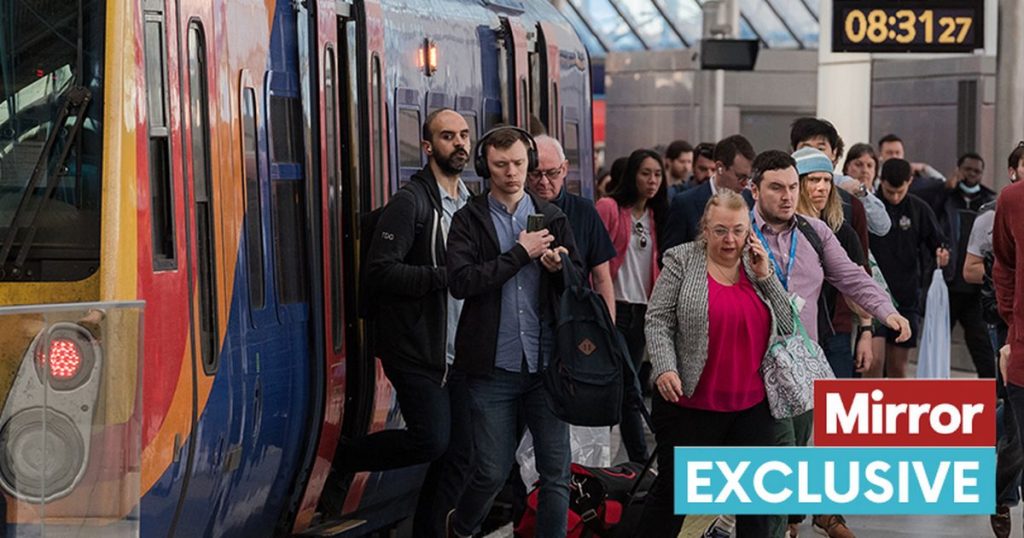Network Rail spent almost £250k on flights last year, despite promoting trains as a greener travel option. Employees spent over £13,000 per week on flights for business trips, with total spending on UK and international flights. In contrast, rail users face high fares and service disruptions. Surprisingly, taking a commercial flight was considered cheaper than trains in some cases, leading to staff flying between major UK cities instead of taking the train.
Friends of the Earth’s representative expressed frustration at this situation, highlighting the irony of promoting trains as the “green” option while choosing flights. In France, there are efforts to ban internal flights where trains are a viable alternative. Network Rail guidelines encourage booking trains when possible or opting for the cheapest option available, with flying only as a last resort. In practice, 99% of work trips are made by rail, totaling over 300,000 journeys, with flights only considered when time constraints or cost-saving measures are a factor.
The decision to fly instead of taking the train raised questions about the state of transportation infrastructure in the UK. Rail users, already facing high fares and service disruptions, were perplexed by Network Rail’s choice to fly internally, given the environmental concerns associated with air travel. The need for time-efficient travel or avoiding overnight stays in hotels was cited as reasons for opting for flights in some cases, despite the carbon footprint associated with air travel.
Network Rail’s spending on flights was significant, with frequent flights between major cities like Birmingham, Glasgow, Edinburgh, and London. The preference for flights over trains on shorter domestic routes raised eyebrows, especially considering the emphasis on sustainability and reducing emissions in the transportation sector. The contrast between promoting railways as a greener option and the actual travel choices made by Network Rail staff highlighted inconsistencies in the company’s messaging and practices.
The public reaction to Network Rail’s flight expenses reflected a broader concern about transportation systems and environmental sustainability. While Network Rail defended its decisions based on practical considerations and cost-saving measures, critics argued that investing in more sustainable rail infrastructure could address some of the challenges that lead to flight preferences. Calls for greater accountability and transparency in decision-making processes regarding travel choices were raised, emphasizing the need to align actions with environmental goals and public expectations.
Overall, Network Rail’s expenditure on flights underscored the complex dynamics of transportation preferences, cost considerations, and environmental impacts. The company’s commitment to promoting rail as a greener travel option clashed with the realities of travel choices made by its staff, sparking a debate about the role of public transportation in addressing climate change and sustainability goals. As the transportation sector continues to evolve, balancing convenience, cost-efficiency, and environmental concerns will be crucial for shaping future travel policies and infrastructure investments.


